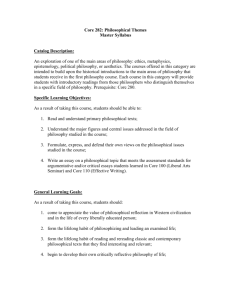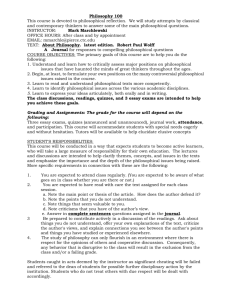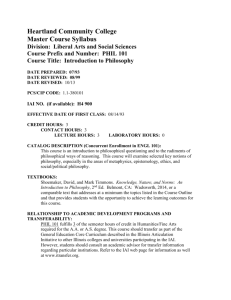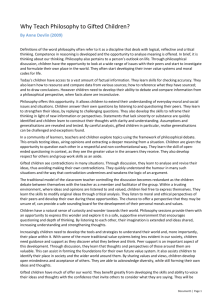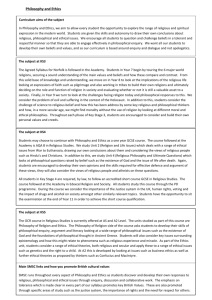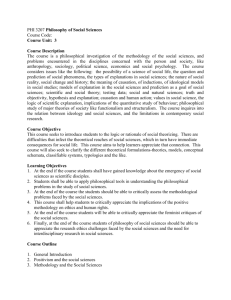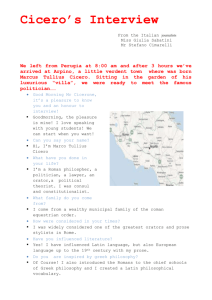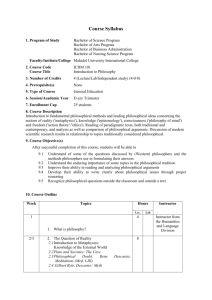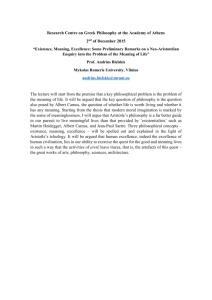PHIL& 101 - Big Bend Community College
advertisement
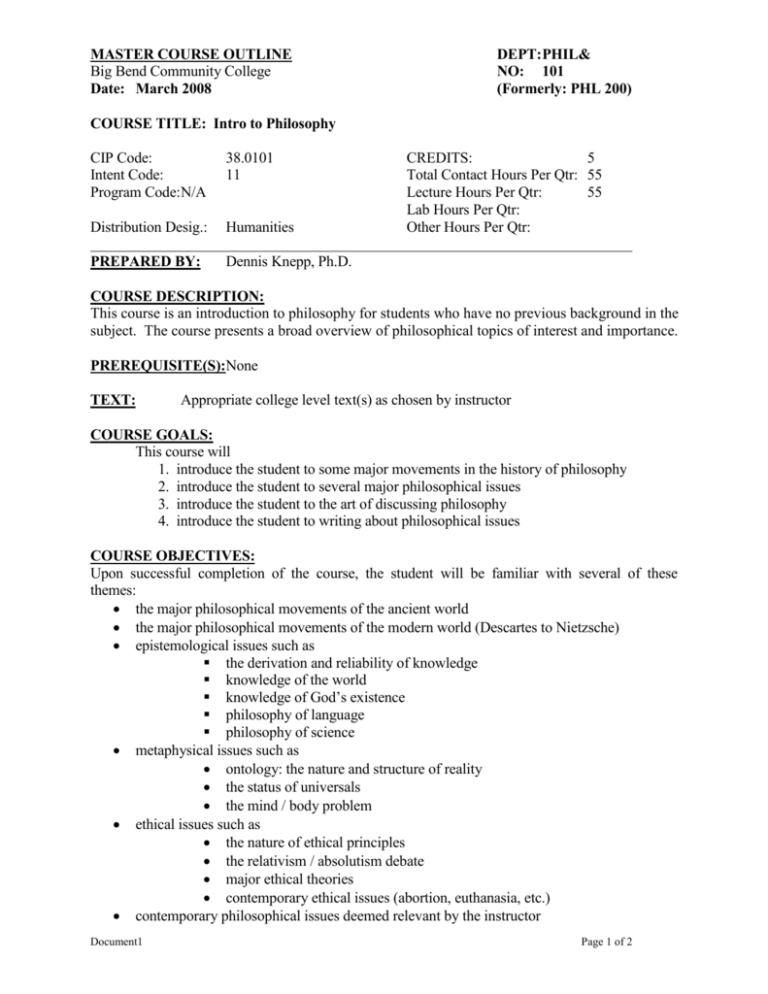
MASTER COURSE OUTLINE Big Bend Community College Date: March 2008 DEPT: PHIL& NO: 101 (Formerly: PHL 200) COURSE TITLE: Intro to Philosophy CIP Code: Intent Code: Program Code:N/A 38.0101 11 Distribution Desig.: Humanities PREPARED BY: Dennis Knepp, Ph.D. CREDITS: 5 Total Contact Hours Per Qtr: 55 Lecture Hours Per Qtr: 55 Lab Hours Per Qtr: Other Hours Per Qtr: COURSE DESCRIPTION: This course is an introduction to philosophy for students who have no previous background in the subject. The course presents a broad overview of philosophical topics of interest and importance. PREREQUISITE(S):None TEXT: Appropriate college level text(s) as chosen by instructor COURSE GOALS: This course will 1. introduce the student to some major movements in the history of philosophy 2. introduce the student to several major philosophical issues 3. introduce the student to the art of discussing philosophy 4. introduce the student to writing about philosophical issues COURSE OBJECTIVES: Upon successful completion of the course, the student will be familiar with several of these themes: the major philosophical movements of the ancient world the major philosophical movements of the modern world (Descartes to Nietzsche) epistemological issues such as the derivation and reliability of knowledge knowledge of the world knowledge of God’s existence philosophy of language philosophy of science metaphysical issues such as ontology: the nature and structure of reality the status of universals the mind / body problem ethical issues such as the nature of ethical principles the relativism / absolutism debate major ethical theories contemporary ethical issues (abortion, euthanasia, etc.) contemporary philosophical issues deemed relevant by the instructor Document1 Page 1 of 2 COURSE CONTENT OUTLINE: At his/her discretion, the instructor will organize the course using one or more of the following areas or topics: 1. Epistemology 2. Metaphysics 3. Ethics 4. Political Theory 5. Aesthetics Each area / topic will include one or more of the following sub-fields: Major philosopher Major school of thought Historical development EVALUATION METHODS/GRADING PROCEDURES: A writing component and a minimum of two exams over the material is required. Other grading instruments will be based on a number of different assessment tools selected by the instructor and designed to meet the needs of the coursework. This may include short essays, quizzes, in-class discussion, attendance, research paper on a major philosopher, philosophical issue or movement, etc. PLANNED TEACHING METHODS/LEARNING STRATEGIES: X Lecture Small Group Discussion Special Project Laboratory _ Audiovisual X Other (List) Supervised Clinical Individualized Instruction Discussion Division Chair Approval Document1 Page 2 of 2


